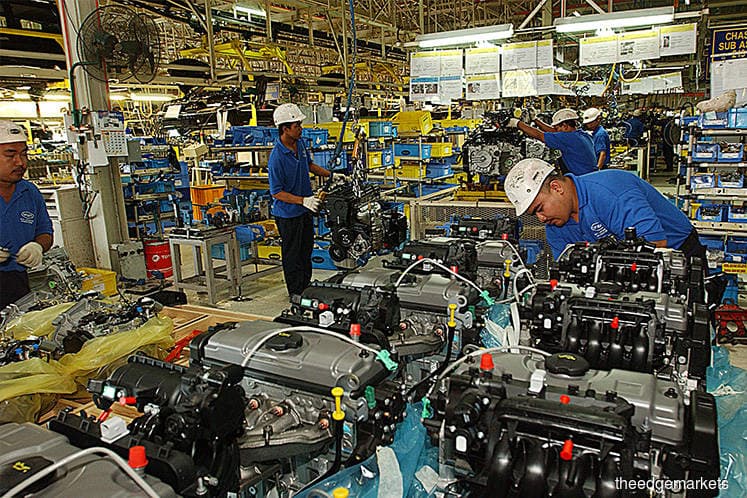
KUALA LUMPUR (Oct 1): IHS Markit's headline Nikkei Asean Manufacturing Purchasing Managers' Index (PMI) fell to 50.5 in September from 51.0 in August this year, signalling another marginal improvement in the health of the manufacturing sector albeit at a slower pace.
Consequently, the September data took the average quarterly PMI reading to 50.6, which is lower than the average seen over the previous quarter at 51.2.
In a statement today, IHS Markit said the September data showed slower growth in both output and new orders, with export sales declining further.
Malaysia came in second among the Asean Manufacturing PMI rankings in September, together with Vietnam which registered a noticeably slower expansion in its goods-producing sector after topping the rank in August.
The Philippines came on top with a marginally quicker improvement in operating conditions. Indonesia fell to fourth position, after recording a slower improvement in operating conditions, while Thailand saw stagnation in its manufacturing sector in September. Singapore and Myanmar continued to signal a decline in the health of their manufacturing sectors.
"The overall manufacturing performance across the region remained uneven. Four of the seven monitored countries indicated an improvement in manufacturing conditions in September, unchanged from August," IHS Markit said.
IHS Markit said the September survey brought signs of softening client demand. Meanwhile, growth in total new business eased from August, as exports fell for a second consecutive month.
"Softer demand conditions were accompanied by the weakest rate of output expansion for six months during September. Moreover, firms cut back on purchasing activity for the first time so far this year," it added.
Despite higher new orders, IHS Markit observed that there appeared to be little pressure on operating capacities. On the contrary, it said the level of unfinished work continued to decrease.
"Job creation was sustained in September, extending the trend of rising employment to six months, the longest seen in the survey history," it said.
On the other hand, IHS Markit said strong cost pressures persisted across the region, whereby input price inflation accelerated to the fastest for nearly one-and-a-half years.
"Six of the seven countries covered by the survey continued to report higher cost burdens at the end of the third quarter," it said, adding that Thailand was the only country recording reduced input costs.
IHS Markit's principal economist Bernard Aw pointed out that the manufacturing upturn across Asean has lost momentum at the end of the third quarter, with slower growth seen in both new orders and output, while export sales declined further.
"Although confidence around future output remained positive and job creation continued, other survey indicators raised doubts about the sustainability of the current expansion: inventories fell further, and Asean manufacturers scaled back on input purchases.
"Furthermore, strong cost pressures persisted across the region, with several countries reporting sharp increases in input prices due to unfavourable exchange rates against the dollar," he added.